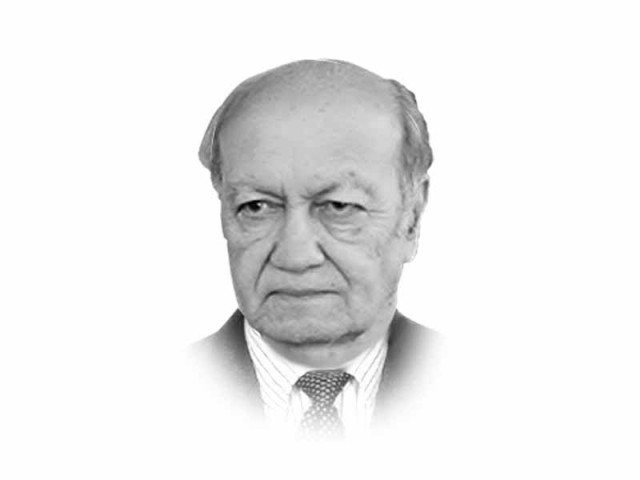The politico-military dynamic
Army may be most powerful institution, but when exercising power that belongs in domain of others it creates problems

The military’s heavy engagement in fighting a major insurgency on the country’s western borders, keeping a watchful eye on the unpredictable eastern front and an uncertain regional scenario are additional factors that are triggering this transformation. Moreover, playing a lead role in flood relief and settlement of internally-displaced persons is stretching its resources and capacity to its limits. Secondly, objective conditions both in the country and abroad do not favour direct military intervention. Despite their many failings, all major political parties are united in ensuring the continuity of the democratic system and the people too feel they have a stake in it. This was amply demonstrated when all the nine political parties represented in the National Assembly unequivocally declared their commitment to democracy. The judiciary today has judges of high integrity and will not acquiesce to any unconstitutional move. Moreover, General Musharraf’s case even if it drags on hangs as a Sword of Damocles for all those who may have any such ideas. The media, despite its heavy commercial leanings and other shortcomings, is vibrant and realises that its future is linked to siding with democracy. Civil society, too, is now energised and lawyers are in the vanguard protecting the integrity of the Constitution. More importantly, General Raheel Sharif is a solid professional and would aspire to be remembered as one who successfully managed to defeat the militants and reestablished the writ of the state in the tribal belt.
Strong reaction by foreign governments to military intervention and certain imposition of sanctions by the US and other Western countries is now an incontrovertible fact that Pakistan in its present state of economy and isolation could ill afford. Another major influencing factor bringing this change is the military leadership’s own experience of 67 years in which it has become clear that their high level of professionalism and enormous sacrifices are overshadowed due to their political involvement. They look at Indian, American and other armies that enjoy enormous respect and are completely apolitical. Their voice is heard and respected. In Pakistan, the army may be the most powerful institution and highly respected, but when it exercises power that belongs in the domain of others it creates serious problems and becomes controversial. Besides, it stunts the development of institutions, warps decision-making and hurts Pakistan’s national interest. This has been the cycle of events for the last sixty-seven years and this cannot continue indefinitely and this realisation has slowly crept into top military leaders.
But they still exercise enormous power especially in the domains of foreign, defence and security policies and to wrest it back from them would need sustained improvement in performance of the civilian government and unreserved commitment to democracy by the military leadership. Genuine civil-military balance will only be restored when the civilian government is in a position to fully control these vital policy matters. Since the government has been partially paralysed by the recent protests, the army’s traditional role of influencing key foreign and defence policy issues has been further enhanced. Nawaz Sharif has conceded a lot in this regard, further tilting the balance in favour of the military’s power.
In the current political impasse, there should be no doubt about the good intent of the top military leadership. If there are dissenting voices and disillusionment among some serving and retired military officers, it is related primarily to the state of governance and do not qualify as failure of democracy. It is also likely, as Javed Hashmi and other politicians have alluded, that there could be some elements in intelligence agencies keeping in contact with the PAT and the PTI and who are still beholden to past practices. This, of course, needs to be investigated.
There are also interconnected policy issues related to civil-military balance. The army’s view on the use of asymmetric forces has also undergone a nuanced change, but here too it is not a total reversal. What will be the impact of this political infighting on combating militancy and the de-radicalisation of society as a whole are issues that cannot be brushed aside.
In essence, it would be fair to assume that we have made some gains in consolidating democracy, but there is still a long way to go. Its future would largely depend on how the civilian government performs as a whole and develops and strengthens institutional mechanisms for control and policy formulation of matters related to defence, security and foreign policy.
Published in The Express Tribune, September 17th, 2014.
Like Opinion & Editorial on Facebook, follow @ETOpEd on Twitter to receive all updates on all our daily pieces.














COMMENTS
Comments are moderated and generally will be posted if they are on-topic and not abusive.
For more information, please see our Comments FAQ